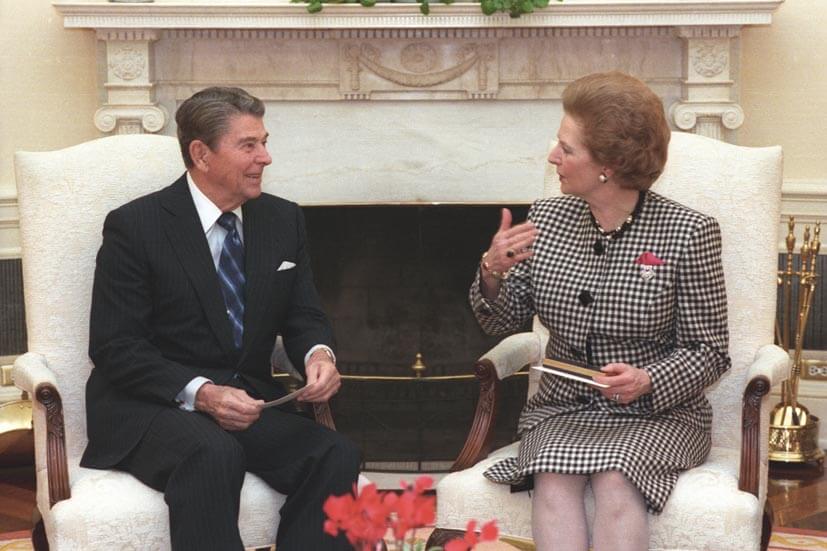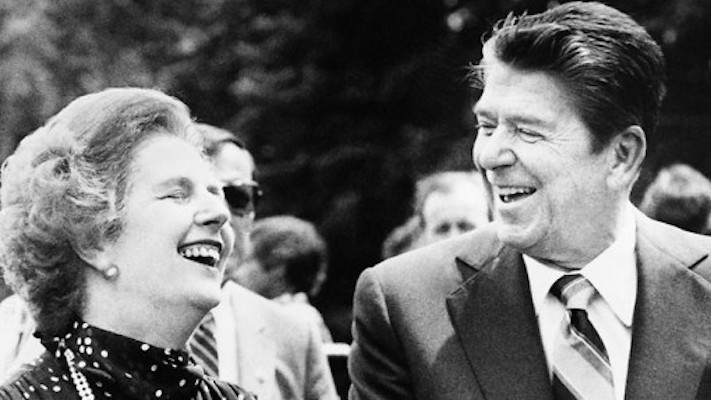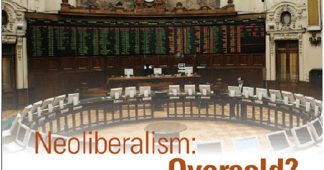The death of neoliberalism and the crisis in western politics
By Martin Jacques
In the early 1980s the author was one of the first to herald the emerging dominance of neoliberalism in the west. Here he argues that this doctrine is now faltering. But what happens next?
The western financial crisis of 2007-8 was the worst since 1931, yet its immediate repercussions were surprisingly modest. The crisis challenged the foundation stones of the long-dominant neoliberal ideology but it seemed to emerge largely unscathed. The banks were bailed out; hardly any bankers on either side of the Atlantic were prosecuted for their crimes; and the price of their behaviour was duly paid by the taxpayer. Subsequent economic policy, especially in the Anglo-Saxon world, has relied overwhelmingly on monetary policy, especially quantitative easing. It has failed. The western economy has stagnated and is now approaching its lost decade, with no end in sight.
After almost nine years, we are finally beginning to reap the political whirlwind of the financial crisis. But how did neoliberalism manage to survive virtually unscathed for so long? Although it failed the test of the real world, bequeathing the worst economic disaster for seven decades, politically and intellectually it remained the only show in town. Parties of the right, centre and left had all bought into its philosophy, New Labour a classic in point. They knew no other way of thinking or doing: it had become the common sense. It was, as Antonio Gramsci put it, hegemonic. But that hegemony cannot and will not survive the test of the real world.
Read the full article on Guardian











